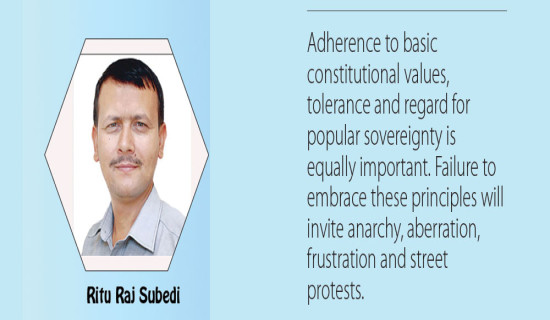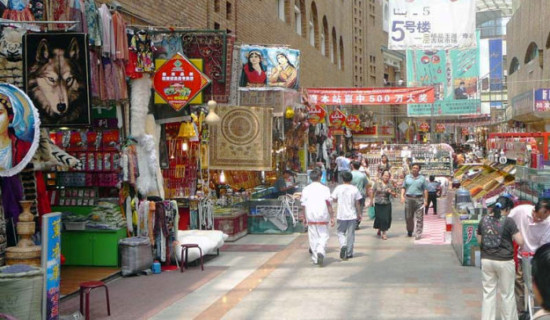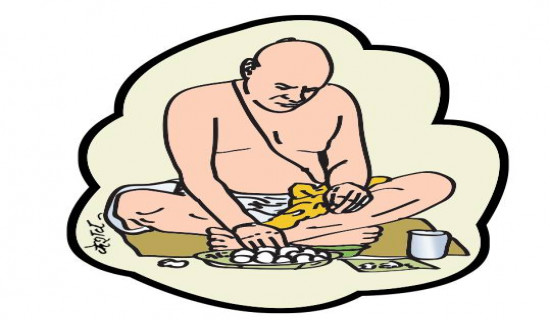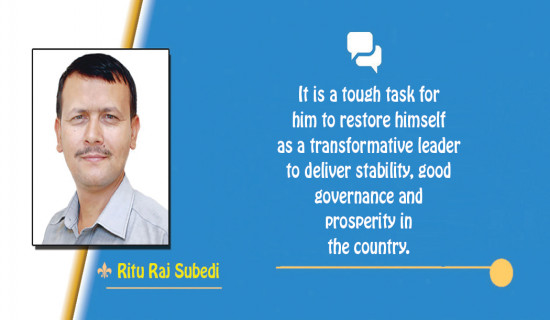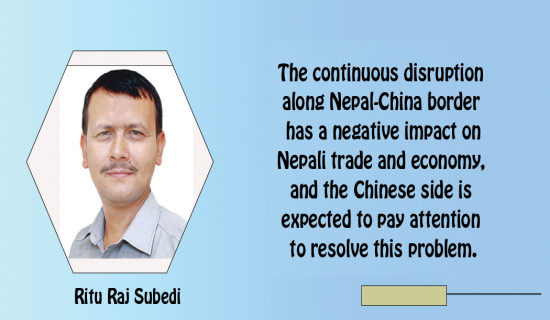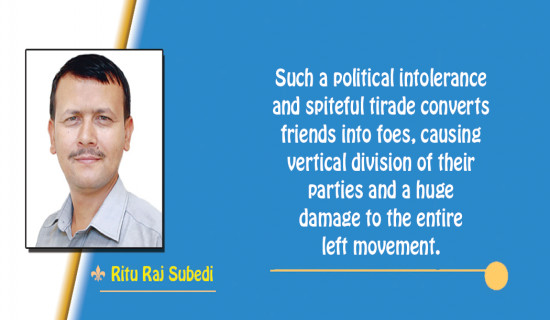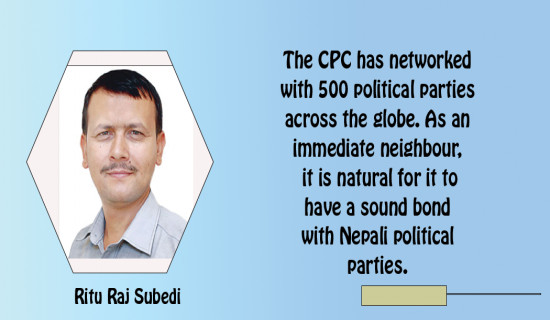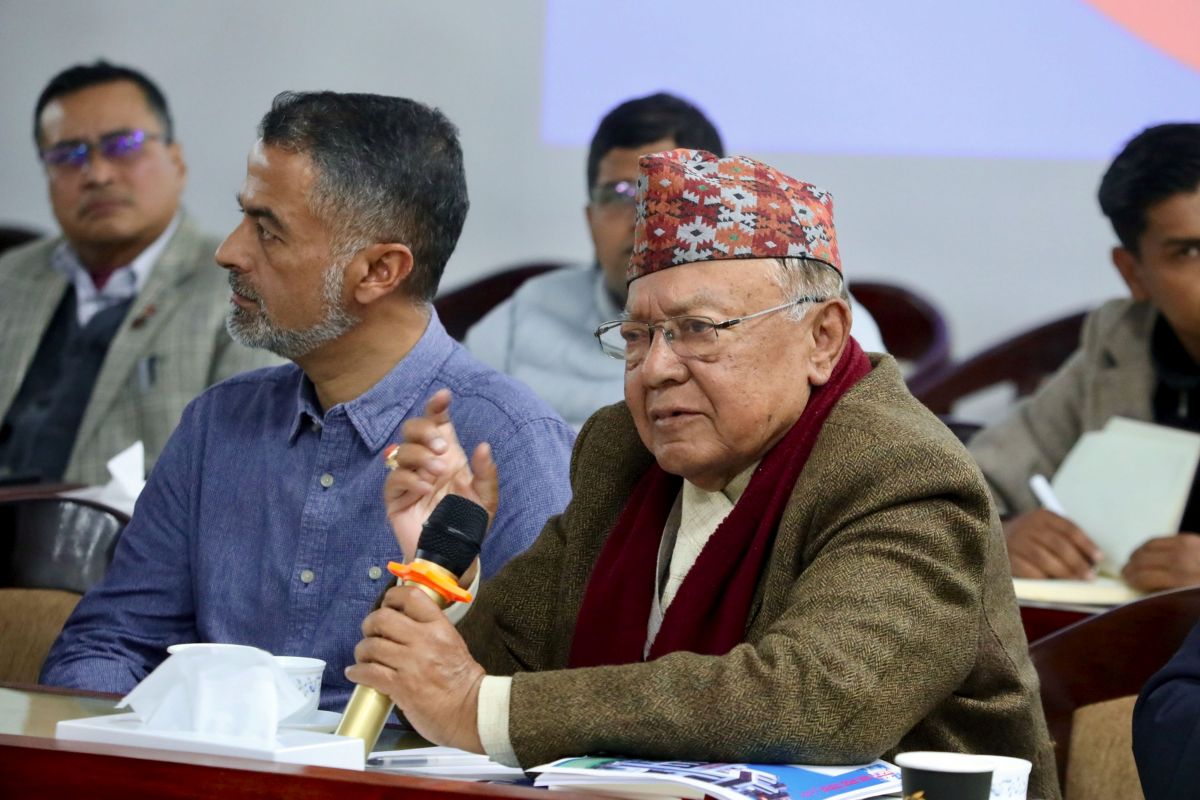- Friday, 6 February 2026
Respect Religious Sentiments Of All
As Nepal heads to consolidate the federal republican system, various latent conflicts have come to the fore. These conflicts range from distribution of powers and resources between the provinces and federation to the flare-up of the religious and identity disputes at the local level. Chief Ministers have been flexing muscles against the centre, demanding the necessary laws that equip them with legal, administrative and financial rights. These unintended developments belie the logic that the underlying structural problems would be resolved once the federal, republican and secular system is operationalised. No doubt, the country has un
Handling Anti-systemic Forces
Eight years after the promulgation of new constitution that transformed Nepal into republican system, pro-monarchical and anti-federalist forces are raising their heads. This implies the eroding functionality and credibility of the current political dispensation. This calls for broader democratic reforms in line with the new constitution that reflects accommodative character and stresses dialogue and compromise with the dissenting forces. If their emergence
TikTok Ban Under Scanner
Nepal government’s recent ban on TikTok, a popular short-form video app, has triggered a new debate on the use of social media considered as viable tools for expressing opinions, showcasing talent, promoting business and conducting political
Enhancing Mutual Development, Just Order
As geopolitics has returned to impact the bilateral relations of nations, the Shanghai Cooperation Organisation (SCO) has emerged as a vibrant intergovernmental forum committed to
Chinese Street Bazaars Buzz Up As Night Falls
Anyone visiting China is awestricken by its modernity – high-rise buildings, spreading boulevards, networks of high-speed trains, sprawling industrial entities, whizzing sleek cars and rushes of people clad in ties and suits. Of course, China is heading on the path of modernisation that is carved by itself but modernity is not only term that defines new China having 500,000-year-long civilisation.
Rigours Of Death Rituals
In his poem ‘Death Be Not Proud,’ famous English poet John Donne has personified death and challenged its pride in power, terming it an illusion. Donne argues that death is neither mighty nor dreadful. However, his metaphysical poem appears to be a wishful thinking that can hardly overcome the acute emotional and mental shock that a person undergoes at the moment of dying or when s/h loses close relatives – father, mother, spouse or offspring suddenly. The loss of loved ones is irreparable. In that sense, death is the most dreadful thing in the life of people. Ever
Prachanda’s Third Innings Treading A Tightrope
CPN-Maoist Centre chairman Pushpa Kamal Dahal Prachanda has kicked off his third innings as Nepal’s Prime Minster with the backing of newly formed 7-party coalition. He was appointed a new PM in a dramatic twist of the political events marked by dissolution of an old alliance and creation of the new one that is a medley of incompatible ideologies. By becoming the new head of government, Prachanda is poised to burnish his old image as a revolutionary leader to check the fast erosion of his party’s influence and support base as seen in the recent federal and provincial elections.
Print Media Enjoys Greater Credibility
Freedom of speech, a free press and right to information constitute fundamental characteristics of democracy in modern time. In a liberal democracy, free speech has been touted as an inalienable part of political and social life. However, free speech and press freedom alone does not strengthen democracy and serve the public. Experiences and examples show that lies, rumours and misinformation
Ethical Politics On The Wane
The revolt, betrayal and realignment that took place on the eve of filing the candidacy for the federal and provincial elections slated for next month are sure to deliver unpredictable electoral shocks to the political parties.
Shun Politics Over Citizenship Issue
The Office of President and the government are at odds after President Bidya Devi Bhandari returned the Nepal Citizenship Act, 2006 (First Amendment) Bill to the federal parliament for a review. President Bhandari put forth 15 concerns and suggestions on the Bill but the House of Representatives (HoR) ignored her suggestions and re-endorsed it as it is. Bhandari is unhappy with the executive under the five-party alliance that gave short shrift to her message. The citizenship should be a means of connecting citizens and mustering their loyalty to the nation but it has unfortunately divided the political spectrum. Moreover, it has been politicised for partisan gains, which will have long-term negative impact on the Nepali society.
FM Khadka’s Visit To China Adds Impetus To Bilateral Bond
This year, Nepal and China marked 67th anniversary of their diplomatic relation which was established on August 1, 1955. Although there were no remarkable activities to mark the occasion, Nepal-China ties have come into the spotlight in the wake of US House Speaker Nancy Pelosi’s visit to Taiwan that triggered much controversy, forcing China to desperately muster support for its One-China Policy on a global scale. Nepal, on its part, has reiterated this policy that it has maintained since the opening of formal relations much to the satisfaction of the northern neighbour.
Mutual Insults Mar Left Movement
It seems conflict, mutual accusation and eventual split are inherent in the communist and socialist movement since its inception. The First International, which was the common name of International Working Men’s Association, collapsed owing to the raging dispute between Karl Marx and Mikhail Bakunin. Their conflict was more ideological than personal though the issue of nationality had apparent role in driving a wedge between them. Marx suspected that Bakunin was a Russian agent working to subvert the international labour movement. He accused the leader of anarchists of being devoid of political theory while the latter called the former an ‘authoritarian.’ Marx stressed on organisation’s centralised structure, coherent ideology and workers’ participation in political struggle, which Bakunin rejected in favour of ‘libertarian socialism.’
Liu Invokes BP To Coax NC
As Nepal has become a new geopolitical hotspot, China has strengthened ‘strategic communication’ with Nepal’s political parties in a clear bid to minimise the Western influence in its backyard. In his recent four-day Nepal visit, Liu Jianchao, head of the International Department of the Communist Party of China (CPC), interacted with major political forces, seeking their role in enhancing Nepal-China relations and addressing its growing security concerns here.
Unified Socialist Heads To Bumpy Ride
Almost 10 months after its establishment, the CPN-Unified Socialist (US) faced an existential crisis. Though it succeeded to overcome the threat to its internal unity, the fissiparous tendency posed a question to its foundational objectives and ideals. When the party decided to recall its ministers and replace them with a new team, the incumbent ministers challenged the leadership. Altogether 10 lawmakers, including the four ministers, submitted their signatures to the party chair Madhav Kumar Nepal, showing their reservation about its decision to call them back prior to the approval of annual budget by the two Houses of federal parliament.
Plugging Diplomatic Loopholes
With the government’s decision to withdraw from the US State Partnership Programme (SPP), Nepal has ridden out a geopolitical storm, thanks to the broader understanding shown by the government, political parties, civil society and media fraternity. The rejection of SPP indicates that Nepal can forge consensus on the key foreign policy issues that were botched up by ham-fisted approach of political and bureaucratic actors in the past. This has once again reaffirmed importance of non-alignment and balanced policy that shuns any form of adventurism in the country’s international relations. Nepal requires common stand in fixing cracks in foreign policy but divisive and partisan politics has bruised its international image and weakened its ability to deal with mighty neighbours and global powers.


